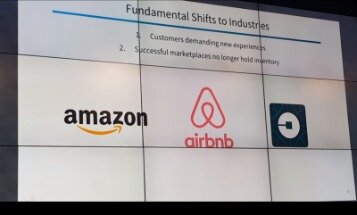Antivirus Tycoon John Mcafee Arrested In Spain For Tax Evasion
Content
You can claim tax relief on the cost of software if it is used in your business. If you are buying or selling cryptocurrency on the regular web through popular platforms, HMRC’s bulk data-gathering powers may well extend to your broking platform. If the platform is in the UK your details and gains are capable of being reported to HMRC. If they fall within the description of readily convertible assets they are subject to PAYE and Class 1 National Insurance Contribution .
So, at what point would someone be liable to pay tax from profits on cryptocurrency investments? What if they sold from one type of cryptocurrency to another – say, from Bitcoin to Ethereum? The HMRC points to a policy paper on cryptocurrencies, as well as a guidance piece on capital gains. It notes that tax would depend on particular circumstances, but where capital gains tax is the rule, chargeable gain or allowable loss would arise when the cryptocurrency is sold or otherwise disposed of. The OECD is already considering how the Common Reporting Standard can be extended to ensure the automatic cross border reporting of holders of crypto assets. Section 1.2.6 of the latest OECD report on their continuing work to counter professionals who ‘enable’ tax evasion, money laundering and other crime, brings further comment on some of the specific risks posed from crypto transactions.
These measures are expected to increase the running costs of crypto-exchanges, which will be required to implement more detailed systems and bring in the expertise to manage the collection and exchange of information. Such a regime would also represent a major cultural shift in terms of how crypto-asset owners have been treated to date. Further regulation has always been likely and is potentially even more relevant as values rise and governments are looking to raise funds to pay for Covid-19 relief measures. South Korean National and hundreds of others charged worldwide in the takedown of the largest darknet child pornography website, which was funded by bitcoin. Contemplating advanced era of technological revolution, the report emphasized on the fight against criminals to evade taxes by committing considerable crimes.
Offshore
Under section 104 Taxation of Chargeable Gains Act, 1992 and the pooling rule, each type of cryptoasset is kept in a ‘pool’. The consideration originally paid for the tokens goes into the pool to create the ‘pooled allowable cost’. HMRC confirms that cryptoassets may be pooled under section 104 TCGA 1992 subject to the 30-day bed and breakfast rule. If you make a trading loss, you should be able to offset this as sideways loss relief against your other income. any form of property created by the person disposing of it, or otherwise coming to be owned without being acquired. If you are buying in the UK on the regular web via a standard browser from what you perceive to be a reliable source you will be subject to money laundering checks under UK rules. You can buy or sell cryptocurrencies via different platforms both on and off the normal web.
There exist rules for taxation for business on foreign currencies and special regimes for intangible assets. The correct treatment will depend on the nature of the bitcoins in the business. The tax agency is looking for a tool that could allow its FIS-DSI Cybercrime team to analyse blockchain-based cryptocurrency transactions. According to the department’s request for proposal document, the likes of Bitcoin and Ethereum are increasingly used for legitimate payments – but also for “tax evasion and money-laundering”. In a statement, the UK tax watchdog HMRC said that the payment facilities that cryptocurrency offers can be misused for money laundering as well as tax evasion. In the separate tax evasion case – which was announced last October – Mr McAfee is accused of failing to file any tax returns from 2014 to 2018. Prosecutors also say he used other people’s names to conceal his assets, including a yacht and property.
Taxation On Cryptocurrency: Hmrc Example
Cryptocurrencies have become extremely popular, not least because it uses new technology which has almost infinite possibilities. Normal bank charges do not apply as you do not hold the currency in a bank but in a digital wallet. Most cryptocurrencies use blockchain technology and some are built around different platforms. A cryptocurrency is a type of cryptoasset which shares many similarities with other currencies. In July 2020 HM Treasury opened a consultation, ‘Cryptoasset promotions’ which seeks views on a government proposal to bring the promotion of certain types of cryptoassets within the scope of financial promotions regulation. The proposal is intended to enhance consumer protection, while continuing to promote responsible innovation. In October 2018 the Cryptoassets Taskforce, consisting of HM Treasury, the Financial Conduct Authority and the Bank of England, published its Final Report.
Presumably you will receive a tax certificate and in some cases be able to offset the tax against a UK tax bill so as to avoid double taxation. It may be difficult for any authority to track your transactions even if they are made via blockchain. It seems unlikely that HMRC is going to be concerned about what you purchase. If you have used cryptocurrency to buy whatever it is you chose to buy on the dark web it seems unlikely that you will have made a profit on cryptocurrency. There are difficulties for tax authorities in keeping up with new technology and new online platforms. It looks as if there may be major challenges in data sharing when the type of data is constantly evolving. Exchange tokens received by miners for their mining activities will generally be outside the scope of VAT.
Furthermore, if you dispose of an asset you own with someone else, you pay Capital Gains Tax on your share of the gain. Part of the confusion, of course, comes from the relative uncertainty around how tax is supposed to work with cryptocurrency, and the fact there are multiple types. As the Guardian recently reported, one Reddit user found themselves with a $50,000 (£36,000) tax liability on trades after they sold $120,000 (£86,000) worth of Bitcoin. The person sold the coins to buy other coins, which are now worth around $30,000 (£21,000).
Clarity on this is likely to be determined by case law or the introduction of specific legislation. In the meantime, many UK tax resident individuals may continue to file tax returns on the basis that their cryptocurrencies are non-UK situs. It will be important to make the relevant disclosures to reduce the risk of penalties should HMRC successfully challenge this position. This is at odds with other assets such as cash or shares, where the residency of the owner is largely irrelevant. If these are exchanged or subject to income tax on acquisition then the value of the asset will need to be calculated. Capital gains on cryptocurrencies of the same type need to be calculated by following ‘pooling’ rules with normal matching rules applying. It is also important to realise that a disposal of cryptocurrency takes place not only when they are exchanged for cash, but also if they are used to make purchases of other cryptocurrencies.
If you have holdings in crypto-currencies it is inevitable that HMRC will receive information regarding that at some point. In addition to wanting to tax the capital gains, it is extremely likely that HMRC will want far more detailed information about the source of funds held in the crypto currency. You can avoid prosecution and get significantly reduced penalties by making a voluntary disclosure. In 2019 HM Revenue and Customs sent formal Information Notices to a number of crypto-exchanges, demanding details of UK residents who had moved money using the exchange between 2017 and 2019. The online crypto-currency ezine Decrypt has reported the contents of an email from Coinbase to some of its UK customers. It’s an online marketplace for buying and selling digital currencies (e.g. Bitcoin, Ethereum, Monero). It also sends information about those transactions to the blockchain network to verify those transactions.
Your Uk Tax Enquiry
In practice it is very unlikely that HMRC will accept that an individual is trading in cryptoassets. Back then one Bitcoin was worth £487.34 and today it’s worth £2,895.21, and so too has their view of the tax treatment changed. Back then they intimated that Bitcoin was so widely speculative purchasing them could be a form of gambling, something which is not taxable.
The value of any cryptoassets awarded for successful mining is likely to be taxable as miscellaneous income, with appropriate expenses reducing the amount chargeable. The calculation of businesses’ taxable profits for the purposes of filling in a tax return is undertaken in pounds sterling, but tokens can be traded on exchanges that may not use pounds sterling . HMRC say if the transaction does not have a GBP value an appropriate exchange rate must be established in order to convert the transaction to sterling and taxpayers must keep records of the valuation methodology.
- If the trade is carried on through a partnership, the partners will be taxed on their share of the trading profit of the partnership.
- The nature of the activities will need to be considered in context of case law to determine the correct treatment.
- Estonia, like several other countries, imposes a withholding tax on certain types of income paid to non-residents.
- In 2019 HM Revenue and Customs sent formal Information Notices to a number of crypto-exchanges, demanding details of UK residents who had moved money using the exchange between 2017 and 2019.
Mr McAfee fled the US in January 2019 with his wife and bodyguards, after prosecutors accused him of hiding property, a yacht and other assets from the IRS. The post South Korea deepens probe on tax evasion via cryptocurrencies appeared first on CoinTelegraph. Due to the way pooling and matching works, all cryptocurrency transactions of an asset need to be included in the calculations. There is a common misconception that cryptocurrencies are taxed as gambling winnings, which would mean that no profit would be taxable and no relief available for losses. This position was based on historic HMRC guidance, but HMRC have now updated their guidance to confirm that they do not consider transactions in cryptocurrencies to be gambling. The blockchain comes into existence by miners solving complex mathematical equations, verifying the blockchain and the transactions it records.
It may be the case that crypto-brokers become compelled to report transactions over a certain threshold, although – as the Guardian notes – this hinges on investors providing enough personal information in the first place. In a nutshell, swapping Bitcoin for Ethereum or even pound sterling will mean that gain or loss on the currency will accrue, and this could lead to a tax bill. Broadly speaking, traders will be liable to income tax whereas non-traders, everyday people who buy and sell the coins, will be liable to CGT. If you’re confused, or unsure if you’re liable, HMRC’s Business Income manual is a good place to start, especially if you’re unclear which category your investments fall into. “We will not hesitate to use the powers Parliament has made available to us to identify those who are intent on evading tax,” an HMRC spokesperson told Alphr. HM Revenue and Customs is looking to invest in “cryptoanalysis” technology that could help it identify and investigate criminals trading in Bitcoin and other virtual currencies. Apart from that, the tax authority is also seeking a software that has the wherewithal to keep a tab on privacy-based coins such as Monero , Zcash , and Dash .
In most circumstances, cryptoassets are held as personal investments by individuals . In this case, individuals will be liable to pay Capital Gains Tax when the cryptoassets are sold. Alternatively, even where criminal tax evasion is suspected, HMRC may wish to deal with the investigation through the civil route under Code of Practice 9.
The Taxation Of Cryptoassets
Over the past five years the hype has grown for bitcoins and consequently so has its value, albeit in peaks and troughs. Your liability only comes into play, though, on gains made above your annual tax-free allowance. For the 2017/2018 tax year, this was set at £11,300 per person and £5,650 fortrusts.
Is Bitcoin a pyramid scheme?
Bitcoin is sometimes called a Ponzi scheme, so this article compared the Bitcoin protocol to an official list of Ponzi characteristics to see if it holds up. Bitcoin does not meet most of the criteria for a Ponzi scheme.
“McAfee, assisted by Watson, allegedly leveraged his fame to deceptively tout numerous digital asset securities to his followers without informing investors of his role as a paid promoter.” The SEC is also pursuing charges against Jimmy Gale Watson Jr, a bodyguard to McAfee, on charges he aided and abetted the sale of the digital currencies. The indictment also alleges McAfee attempted to evade the taxman by concealing homes, a car and a yacht in the names of others. He hasn’t been associated with his antivirus software company since the 1990s. Authorities accuse Mr McAfee, between 2017 and 2018, of hyping up cryptocurrencies likeVerge, Reddcoin, Dogecoin in which he held a stake, then selling them for a profit when their price spiked following his endorsement. His views were echoed by another highly respected figure in UK cryptocurrency and FinTech, Professor Carol Alexander. The top academic suggested the government would be keen to explore further uses for blockchain – the underlying technology of cryptocurrencies – as it would actively assist with forensic accounting techniques.
Cryptoassets are what are termed as fungible assets, therefore you can pool like with like. If you are trading you are expected to prepare trading accounts for tax and register as a sole trader for income tax. If your profits are taxed as income, they are taxed at the same rate as a salary or profit from trading. No matter how you set up your transactions through the dark web, you still run the risk of losing your money if dealing with dark-web merchants. Note that although cryptocurrency shares many similarities with other currencies, it is not considered to be currency or money by the Bank of England, G20 Finance Ministers and Central Bank Governors, or HMRC. You can buy and sell the currency in exchange for other cryptocurrencies or for fiat currencies, such as pounds, euros or dollars. Exchange tokens such as Bitcoin are located for tax purposes where ever the beneficial owner is resident.
James assists entrepreneurs and wealthy families put in place the correct business structures, implement succession planning and advise on all aspect of property taxation. In summary there’s no clear cut answer on how to tax any cryptocurrency profit, however, the good news is that HMRC don’t have a clear answer either. In the absence of legislation or guidance, it will be up to the tribunals to confirm the correct treatment, but until then a sensible approach is required with careful consideration of the relevant facts. For example, would a non-resident who travels to the UK and disposes of bitcoins in the UK be taxable here? There are a lot of interesting questions thrown up by the briefing which will require careful consideration of your circumstances to determine the correct treatment. People have created real physical bitcoins and paper wallets, but fundamentally bitcoin is completely intangible. It exists only in the blockchain, but it has value as it cannot be changed and there is a limit to the number of bitcoins which can exist.
Mr McAfee sold the cyber security company that bears his name to Intel in 2010. He announced a second attempt to run for president in June 2018, for the 2020 presidential election. The SEC is looking for damages as well as disgorgement of ill-gotten gains, with interest and wants to ban him permanently from serving as an officer or director of any listed company or any company that files reports to the agency. Investors were left holding digital assets that are now essentially worthless, it added. According to the SEC complaint, he promoted seven unnamed ICOs on Twitter making more than $23m (£18m) in cryptocurrency from the scheme.
Note that HMRC will consider on a case-by-case basis whether a transfer of exchange tokens meets the above definitions for stamp duty or stamp duty reserve tax to apply. HMRC’s initial view at the time it published its guidance was that existing exchange tokens would not be likely to meet the above definitions. The costs of mining activities will not constitute allowable costs here because they are not incurred wholly and exclusively to acquire the exchange tokens. If the mining activity is part of a trade, it may be possible to deduct some of these costs against trading profits. If the miner actually keeps the awarded assets, they may have to pay CGT or Corporation Tax on chargeable gains when they later dispose of them. In November 2019, HMRC released new guidance dealing specifically with the tax treatment of exchange tokens for businesses. The tax treatment of security tokens and utility tokens will be addressed in future HMRC guidance.
How do I cash out Bitcoin without paying taxes?
The only way to truly avoid paying taxes on your Bitcoin is to renounce your U.S. citizenship. When you hold U.S. citizenship, you live under IRS tax law no matter what and have to pay taxes no matter where you live.
We have wide-ranging experience in assisting those facing a COP 9 investigation whilst helping to navigate the rigid time-limits and strict rules. We have a proven track record of successfully contesting disputed tax assessments and penalties with HMRC. It is strongly recommended that you consult a tax lawyer as soon as possible to receive detailed advice on how to take control of the situation and negotiate with HMRC.
If the special rules apply, the new cryptoassets and the costs of acquiring them stay separate from the main pool. The gain or loss should be calculated using the costs of the new cryptoassets that are kept separate. Victoria is treated as having a single pool of 150 of token A and total allowable costs of £126,000. If some of the tokens from the pool are sold, this is considered a ‘part-disposal’. A corresponding proportion of the pooled allowable cost would be deducted when calculating the gain or loss. For example, if a person owns BTC, Ethereum and Litecoin, they would have three pools and each one would have it’s own ‘pooled allowable cost’ associated with it. This pooled allowable cost changes as more tokens of that particular type are acquired and disposed of.













